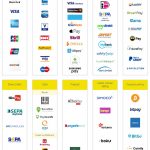In today’s competitive business landscape, maintaining strong relationships with customers is crucial for success. Customer Relationship Management (CRM) tools play a key role in helping businesses manage interactions, track leads, and analyze data to improve customer satisfaction and drive growth. With a wide range of CRM tools available in the market, choosing the right solution for your business can be a daunting task. To help you navigate the options, let’s compare some popular CRM tools based on key features and functionalities.
1. Salesforce
Key Features:
- Customizable dashboards and reports for insights
- Automation of sales processes and workflows
- Integration with third-party apps and tools
- AI-powered analytics for predictive insights
Pricing:
- Multiple pricing tiers starting from basic editions to enterprise-level solutions
- Additional costs for add-on features and integrations
Ideal For:
- Large enterprises with complex sales processes
- Businesses looking for extensive customization and scalability
2. HubSpot CRM
Key Features:
- Easy-to-use interface with drag-and-drop customization
- Marketing automation tools for lead generation
- Detailed contact management and pipeline tracking
- Free basic CRM version available
Pricing:
- Free CRM option with limited features
- Paid Marketing Hub, Sales Hub, and Service Hub tools available
- Additional costs for advanced features and integrations
Ideal For:
- Small to mid-sized businesses looking for an all-in-one CRM and marketing solution
- Teams focused on inbound marketing strategies and lead nurturing
3. Zoho CRM
Key Features:
- Multi-channel communication tools for customer engagement
- Advanced analytics and forecasting capabilities
- Workflow automation and process management
- Integration with Zoho’s suite of business tools
Pricing:
- Basic edition available for free
- Affordable pricing tiers for growing businesses
- Additional costs for add-on features and premium support
Ideal For:
- Small to mid-sized businesses looking for a comprehensive CRM solution
- Companies seeking cost-effective tools with extensive customization options
4. Microsoft Dynamics 365
Key Features:
- Integration with Microsoft Office 365 for seamless collaboration
- Unified platform for sales, marketing, and customer service
- AI-driven insights for personalized customer interactions
- Scalable solutions for businesses of all sizes
Pricing:
- Various pricing plans for Sales, Marketing, and Customer Service modules
- Additional costs for premium features and customizations
Ideal For:
- Businesses that already use Microsoft products and services
- Companies looking for a versatile CRM solution with strong integration capabilities
Choosing the right CRM tool for your business requires careful consideration of your unique needs, budget, and long-term goals. By comparing key features, pricing, and suitability for different business sizes, you can narrow down your options and find a CRM solution that aligns with your objectives. Whether you opt for a robust enterprise solution like Salesforce, an all-in-one platform like HubSpot CRM, a customizable system like Zoho CRM, or an integrated Microsoft Dynamics 365 solution, investing in the right CRM tool can enhance customer relationships, streamline processes, and drive business growth. Evaluate your options carefully and select a CRM tool that will empower your team to deliver exceptional customer experiences and achieve sustainable success.










